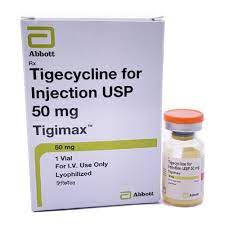piracillin AMPICILLIN
Introduction to Piracillin
Piracillin is a type of antibiotic used to treat a variety of bacterial infections. It belongs to the penicillin group of antibiotics, which are known for their effectiveness in fighting bacteria by disrupting their cell wall synthesis.
Composition of Piracillin
Piracillin contains the active ingredient piperacillin, which is a broad-spectrum antibiotic. This means it can target a wide range of bacteria, making it useful for treating different types of infections.
Uses of Piracillin
- Treatment of respiratory tract infections
- Management of urinary tract infections
- Addressing gastrointestinal infections
- Treatment of bacterial meningitis
- Prevention and treatment of endocarditis
- Management of sepsis
- Treatment of skin and soft tissue infections
Side Effects of Piracillin
Common Side Effects:
- Nausea
- Vomiting
- Diarrhea
- Rash
- Allergic reactions
Serious Side Effects:
- Severe allergic reactions
- C. difficile infection (a type of bacterial infection that can cause severe diarrhea)
- Liver toxicity
- Blood disorders
- Rare severe skin reactions
Precautions of Piracillin
Before taking Piracillin, inform your doctor if you are allergic to penicillin or beta-lactam antibiotics. If you have mononucleosis, avoid using Piracillin as it can cause a rash. Additionally, if you have liver or kidney issues, consult your doctor to ensure safe usage.
How to Take Piracillin
- Follow the dosage prescribed by your doctor.
- For adults, the usual oral dose is 250 mg to 500 mg every 6 hours.
- For children, the dose is based on their weight.
- Piracillin can also be administered intravenously or intramuscularly for severe infections.
- Complete the full course of the medication even if you feel better.
Conclusion of Piracillin
Piracillin is a powerful antibiotic used to treat a variety of bacterial infections. While it is generally safe and effective, it is important to follow your doctor's instructions and be aware of potential side effects. Always consult with your healthcare provider if you have any concerns or experience any adverse reactions.


Can Piracillin be taken safely while breastfeeding?
Piracillin is considered safe to use while breastfeeding. It passes into breast milk in small amounts but is unlikely to harm a nursing infant. If you notice any unusual symptoms in your baby, like diarrhea or rash, contact your doctor. Always discuss medication use with your doctor while breastfeeding.

Can Piracillin be taken safely while pregnant?
Piracillin is generally considered safe during pregnancy, but it's important to use it only when clearly needed. Your doctor will weigh the benefits against any potential risks. If you're pregnant or planning to become pregnant, discuss the use of Piracillin with your doctor to ensure it's the best option for you.

Can I take Piracillin with other prescription drugs?
Piracillin can interact with certain medications, such as allopurinol, which may increase the risk of skin rash. It may also reduce the effectiveness of oral contraceptives. Always inform your doctor about all medications you're taking to avoid potential interactions. Your doctor can adjust your treatment plan to ensure safety and effectiveness.

Does Piracillin affect appetite?
Piracillin doesn't typically affect your appetite. Most people taking this medication don't notice changes in how hungry they feel. If you notice unexpected changes in your appetite after starting Piracillin, talk with your doctor. They can help determine if the changes are related to the medication or if there might be another cause.

Does Piracillin affect mood?
Piracillin doesn't typically cause mood changes. Most people take this medication without experiencing anxiety or agitation. If you notice changes in your mood after starting Piracillin, talk with your doctor. These symptoms might be related to something else, like stress or another health condition.

Does Piracillin affect sleep?
Piracillin doesn't typically cause sleep problems. Most people take this medication without experiencing changes in their sleep patterns. If you notice changes in how well you sleep after starting Piracillin, talk with your doctor. Sleep problems might be related to something else, like an infection or another health condition.

Does Piracillin cause headaches?
Headaches are not a common side effect of Piracillin. Most people take this medication without experiencing headaches. If you do get mild headaches while taking Piracillin, staying well-hydrated and resting may help. You can also take over-the-counter pain relievers after checking with your doctor. For severe or persistent headaches, talk with your healthcare provider to determine if they might be related to Piracillin or another cause.

Does Piracillin cause stomach upset?
Piracillin can cause stomach upset, including nausea, vomiting, and diarrhea. These side effects are usually mild and occur in a small percentage of people. Taking Piracillin with food might help reduce stomach discomfort. If you experience severe or persistent stomach issues, contact your doctor for advice.

Does Piracillin cause weight gain?
Piracillin doesn't typically affect body weight. Most people take this medication without noticing changes in weight. If you experience unexpected weight changes while taking Piracillin, talk with your doctor. They can help determine if the changes are related to the medication or if there might be another cause.

Does Piracillin interfere with sexual function?
Piracillin doesn't typically interfere with sexual function. Most people take this medication without experiencing changes in sexual health, such as erectile dysfunction or loss of libido. If you notice any changes in your sexual function while taking Piracillin, it's important to talk with your doctor. They can help determine if these changes are related to the medication or if there might be another cause. Your doctor can also recommend appropriate treatment to address any issues while continuing your care.

Does Piracillin limit driving?
Piracillin might cause mild side effects like dizziness or drowsiness, which could affect your ability to drive. If you experience these symptoms, avoid driving until they go away. Pay attention to how your body responds when you first start taking Piracillin. Talk with your doctor if you have concerns about driving.

Does Piracillin make it hard to think or concentrate?
Piracillin doesn't typically cause thinking problems or concentration difficulties. Most people take this medication without experiencing changes in mental focus. If you notice problems with your thinking after starting Piracillin, talk with your doctor. These symptoms might be related to something else, like an infection or another health condition.

Does Piracillin make people tired or drowsy?
Piracillin doesn't typically cause tiredness or drowsiness. Most people take this medication without feeling unusually tired. If you notice you're feeling very sleepy or fatigued while taking Piracillin, talk with your doctor. Your tiredness might be caused by something else, like an infection or another health condition.

For how long do I take Piracillin?
Piracillin is usually taken for a short-term period to treat acute infections. The duration depends on the type and severity of the infection. Your doctor will provide specific instructions on how long to take it. Always complete the full course as prescribed, even if you feel better, to ensure the infection is fully treated.

How does Piracillin work?
Piracillin works by interfering with the bacteria's cell wall formation, which is essential for their survival. Think of it like breaking down a protective barrier, causing the bacteria to die. This action helps treat infections by stopping the growth of bacteria. Piracillin is effective against a wide range of bacterial infections.

How do I know if Piracillin is working?
Piracillin is used to treat bacterial infections. You'll know it's working when your symptoms, like fever or pain, start to improve. Your doctor may also use lab tests to monitor the infection's response to treatment. Regular check-ups are important to ensure the medication is working properly.

How do I take Piracillin?
Take Piracillin as prescribed by your doctor. It's usually taken every 6 hours, which means four times a day. You can take it with or without food, but taking it with food might help if it upsets your stomach. Swallow the capsules whole; do not crush or chew them. If you miss a dose, take it as soon as you remember unless it's almost time for your next dose. In that case, skip the missed dose and continue with your regular schedule. Don't take two doses at once.

How long does it take for Piracillin to start working?
Piracillin starts working within a few hours of taking it. You may notice improvement in symptoms, like reduced fever or pain, within a day or two. However, it may take several days to achieve full therapeutic effects. Factors like the type of infection and your overall health can affect how quickly you see results. Always take Piracillin as prescribed for the best outcome.

How should I store Piracillin?
Store Piracillin capsules at room temperature, away from moisture and light. Keep them in a tightly closed container. Don't store them in the bathroom, where humidity can affect the medication. Always keep Piracillin out of reach of children to prevent accidental ingestion. Check the expiration date regularly and dispose of expired medication properly.

Is Piracillin effective?
Piracillin is effective in treating a variety of bacterial infections, such as respiratory tract infections, urinary tract infections, and gastrointestinal infections. It works by stopping the growth of bacteria. Clinical studies and medical use have shown Piracillin to be effective in treating these conditions when used as prescribed.

Is Piracillin safe for the elderly?
Piracillin is generally safe for the elderly, but they may be more sensitive to its effects. Older adults are at higher risk for side effects like kidney problems or allergic reactions. Dose adjustments may be needed based on kidney function. Regular monitoring by a doctor is important to ensure safe use.

Is it safe to drink alcohol while taking Piracillin?
It's best to avoid alcohol while taking Piracillin. Alcohol can increase the risk of side effects like stomach upset and dizziness. It may also reduce the effectiveness of the medication. If you choose to drink, do so in moderation and watch for any adverse reactions. Discuss alcohol use with your doctor for personalized advice.

Is it safe to drink coffee or tea while taking Piracillin?
You can drink coffee and tea while taking Piracillin. There's no known interaction between caffeine and Piracillin. However, caffeine can sometimes cause stomach upset, which might be worsened by Piracillin. If you experience discomfort, try reducing your caffeine intake and see if it helps.

Is it safe to exercise while taking Piracillin?
You can exercise while taking Piracillin, but listen to your body. If you feel tired or unwell, take it easy. Piracillin can cause mild side effects like dizziness or stomach upset, which might affect your exercise routine. Stay hydrated and avoid strenuous activities if you experience any symptoms. Consult your doctor if you have concerns.

What are Piracillin possible harms and risks?
Piracillin can cause nausea, vomiting, diarrhea, rash, or allergic reactions. Serious risks include severe allergic reactions, C. difficile infection, liver toxicity, blood disorders, and rare severe skin reactions. Seek medical help for severe symptoms like difficulty breathing or persistent diarrhea.

What disease or symptom is Piracillin used for?
Piracillin is used to treat bacterial infections, such as respiratory tract infections, urinary tract infections, and gastrointestinal infections. It works by stopping the growth of bacteria, which helps clear the infection. Piracillin can be used alone or with other antibiotics for more severe infections. It's important to use it as prescribed by your doctor.

What is Piracillin?
Piracillin is an antibiotic in the penicillin class. It works by stopping the growth of bacteria, which helps treat infections. Piracillin is used to treat various bacterial infections, including respiratory, urinary, and gastrointestinal infections. It's often used alone but can be combined with other antibiotics for more severe infections.

What is the usual dose of Piracillin?
The usual dose of Piracillin for adults is 250 to 500 mg every 6 hours, depending on the infection being treated. For children, the dose is based on their weight. Your doctor will adjust the dose if needed, especially for severe infections or in special populations like the elderly. Always follow your doctor's specific dosing instructions for your health needs.

Who should avoid taking Piracillin?
Don't take Piracillin if you're allergic to it or other penicillin antibiotics. Serious allergic reactions, which cause rash, hives, or difficulty breathing, require immediate medical help. Piracillin should be used with caution in people with kidney problems, as dose adjustments may be needed. Always consult your doctor about these concerns.
Available in 3 variations

strip of 10 capsules

Piracillin 250mg Capsule
strip of 10 capsules

Piracillin 500mg Injection
vial of 1 Injection













.svg)
